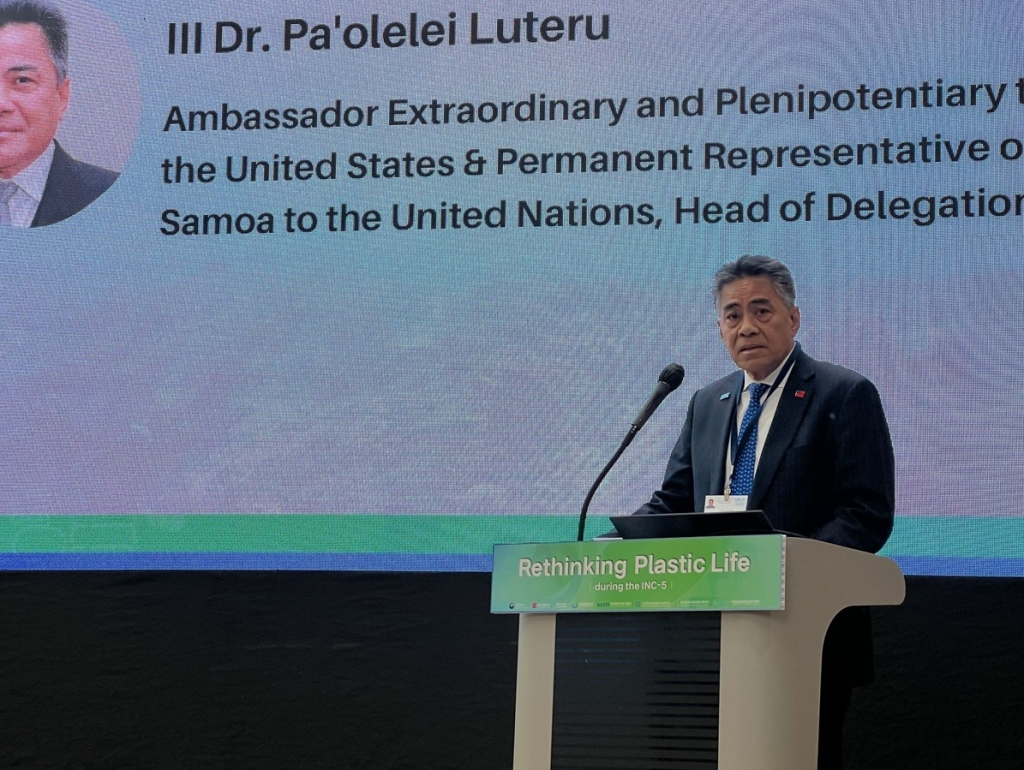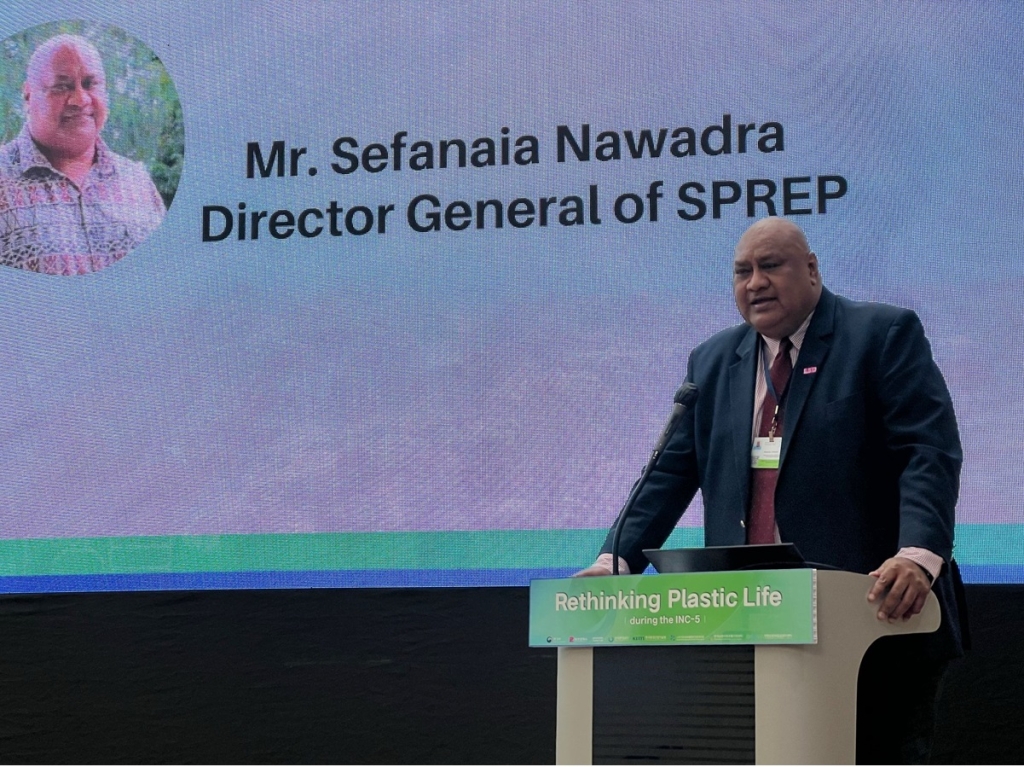
Small Island Developing States (SIDS) have reaffirmed their position that the future plastics treaty must include clear obligations to provide adequate, predictable, sustainable, and timely financial resources for SIDS and other developing countries.
The issue was discussed at a side event hosted at the Rethinking Plastic Life expo during the fifth session of the Intergovernmental Negotiating Committee (INC-5) on an international legally binding instrument on plastic pollution, currently underway in Busan, Republic of Korea.
Organized by the World Bank with support from PROBLUE, the event focused on the unique financing, institutional capacity, and technological needs of SIDS to implement the future instrument effectively.
The Chair of Alliance of Small Island States (AOSIS) and Samoa’s Permanent Representative to the United Nations, H.E. Ambassador Fatumanava-o-Upolu III Dr. Pa’olelei Luteru stressed that the financial provisions under the treaty must take into account that the ability of developing countries to implement the agreement.
“We have consistently called for priority access in line with the special circumstances of SIDS and will continue to do so,” said Ambassador Luteru. “The ability of developing countries to implement the agreement will depend on the provision of financial assistance that is new, additional, timely, adequate, sustainable, accessible, and includes simplified access for SIDS and Least Developed Countries.”
He also emphasized the need for robust capacity-building mechanisms, adding, “The treaty must establish clear systems to not only deliver capacity building and technology transfer but also monitor their effectiveness.”

The Director General of the Secretariat of the Pacific Regional Environment Programme, Mr Sefanaia Nawadra highlighted the pivotal role of SIDS in securing the historic United Nations Environment Assembly (UNEA) Resolution 5/14, which mandates the treaty's development.
“SIDS were instrumental in pushing for this instrument because we require support in managing plastics effectively,” said Mr. Nawadra. “While plastics have been a useful part of our lives, it is clear that we need to be more responsible and much better managing its production, usage, reuse, and disposal.”
Mr. Nawadra emphasised the need for coordinated regional support. “At the regional level, we are trying to help our countries by connecting them brokers of knowledge, service and expertise they will need to effectively implement the treaty,” he said.
He also added that SIDS should not be left to bear the costs of managing a crisis they did not cause. “Financing is always a very contentious issue in multilateral environmental agreements. The onus must fall on the countries most responsible for plastic pollution to ensure SIDS have the resources they need,” he said.

Panellists at the event underscored the value of international cooperation, with calls to include strong provisions for capacity building and technical assistance in the treaty text. “As SIDS, we have committed to ensuring that the treaty we get at the end of this process is one that works for our people and supports the continued development of SIDS,” Ambassador Luteru said.
The fifth Intergovernmental Negotiating Committee to develop an international legally binding instrument on plastic pollution, including in the marine environment is taking place in Busan, Republic of Korea, from 25 November to 1 December 2024.
The Pacific Islands are represented by the Cook Islands, Federated States of Micronesia, Fiji, Kiribati, Marshall Islands, Nauru, Niue, Palau, Papua New Guinea, Samoa, Solomon Islands, Tonga, Tuvalu and Vanuatu through the support of the Government of Australia and the United Nations.
They are supported by the Secretariat of the Pacific Regional Environment Programme (SPREP), working with partners the Pacific Islands Forum Secretariat (PIFS), Office of the Pacific Ocean Commissioner (OPOC), The Pacific Community (SPC), Forum Fisheries Agency (FFA), Environmental Investigation Agency (EIA), Centre for International Environmental Law (CIEL), University of Wollongong, WWF and Massey University.
For more information, visit: https://www.unep.org/inc-plastic-pollution/session-5